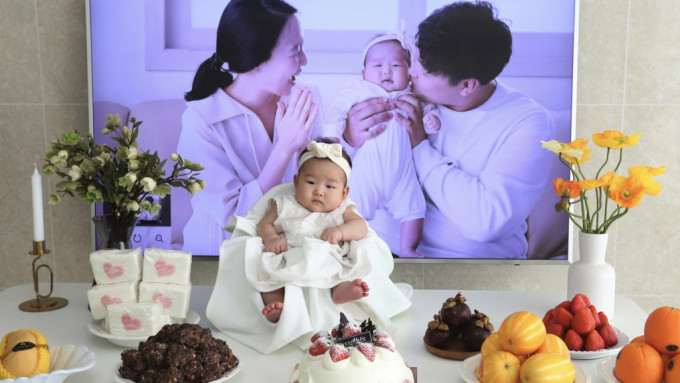Seoul housewife Lee Chung-hee, who will turn 60 next year, is upset that she is suddenly one year younger because South Korea officially abandoned its conservative age calculation system.

A South Korean baby girl celebrated her 100th day in April.
A South Korean baby girl celebrated her 100th day in April. She was born in the middle of the night on New Year’s Eve and changed “2 years old” two hours later. Associated Press
According to Agence France-Presse and Reuters, South Korea is the last East Asian country where a baby’s age is considered to start in the womb.
Conservative, South Koreans will be considered as false age, in the mother’s belly has lived for 10 months, a birth is considered a year old. Then there is the age method, every year at the end of the year after January 1 is considered to be one year older. The algorithm added that a baby born on December 31 would be considered 2 years old on the second day of birth.
The formation of chaos in the absence of social capital
Age-specific schemes have long been criticised as costing society unnecessary and causing confusion, such as when older people think they are entitled to pensions and tolled tourist benefits but have to wait a few years for enforcement. While China, Japan, and even North Korea adopted the first birthday measure decades ago, South Korea has always counted it as a false age.
Until December last year, South Korea through law enforcement to break the false year calculation law, a comprehensive change to the domestic scale, according to the reality of the birthday date, every birthday only add one year. South Koreans are instantly a year or two younger. “I feel good,” Lee Chung-hee says. She shows that speaking to people like herself, who will turn 60 next year, makes her feel young.
Lee Wan-kyu, director of the Law and Law Office, said in a press conference on Monday, “The number of law enforcement disputes, praise and social chaos caused by age will increase.”
The public show farewell: feel younger
At present, many law enforcement and administrative matters in South Korea, including the age on passports, the age of juveniles to be prosecuted, retirement benefits or management services, have already been calculated with the birthday date. Some sticking points, including the school year, duty years and legal drinking age, will survive the system by its birth year.
According to anthropologist Mo Hyun-joo, “age does matter” in Korean civilization because it affects one’s relative social position and determines which titles and honorifics to use in addressing others.
Koreans first meet to answer each other’s birthday acquaintance order, speech often used brother (oppa), sister (unni) and other titles.
As soon as there is a pause, South Korea’s “age-based hierarchical civilization [can] fade away” as people start to use their national age in situations like school, says Mok.
According to a survey conducted by the authorities in September 2022, 86% of South Koreans said that after the new law expires, they will adopt the domestic age scale in their daily life.